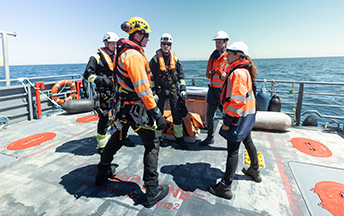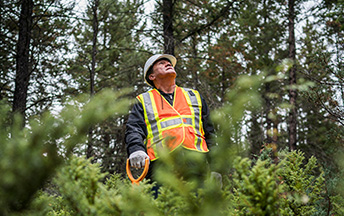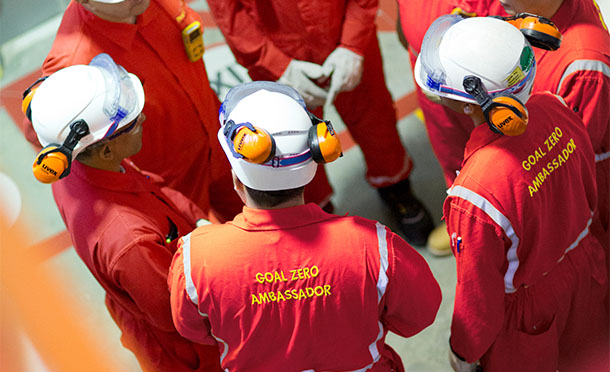Preparing for emergencies
Having the necessary resources to deal with spills, leaks, fires and explosions, both offshore and onshore, is essential to meet our aim to do no harm to people or the environment.
We routinely prepare and practise our emergency response to potential incidents such as a spill or a fire. This involves working closely with local emergency services and regulatory agencies to jointly test our plans and procedures. In 2022, we held four large-scale emergency response exercises to ensure we have the required preparedness at assets we operate in Brazil, Nigeria, the Philippines and the US Gulf of Mexico.
We strive to learn not only from events that have happened, but also from potential events that were prevented by our safety barriers.
Spills
We have programmes in place across our operations to reduce the number of operational spills. The volume of operational spills of oil and oil products of more than 100 kilograms to the environment (land or water) in 2022 was 0.06 thousand tonnes, an increase from 0.05 thousand tonnes reported for 2021. In 2022, the largest operational spill was a spill of around 19.5 tonnes in the Netherlands.
Spills - operational [A]
There were 54 operational spills of more than 100 kilograms in 2022, compared with 42 in 2021.
Spills - sabotage [A] [B]
[B] All sabotage- and theft-related spills occurred in Nigeria except in 2015 (0.005 thousand tonnes) and 2016 (0.001 thousand tonnes).
In 2022, all of the spills caused by sabotage and theft were in Nigeria. The number of these spills decreased to 75 in 2022 from 106 in 2021, while the volume of these spills declined to 0.6 thousand tonnes from 3.3 thousand tonnes in 2021 (see Spill response and prevention in Nigeria).
Read about our emergency response procedures at www.shell.com/process-safety.










